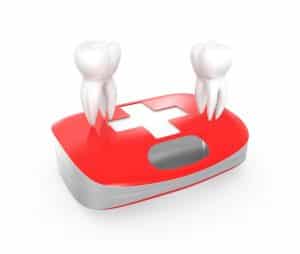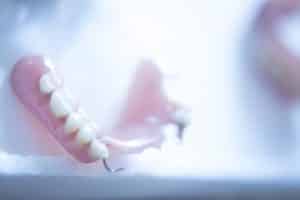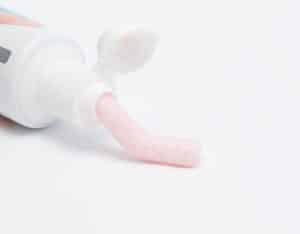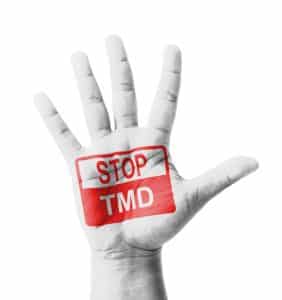 Regardless of the type of dental emergency that happens to you, there’s an easy way to get yourself prepared. Hopefully, of course, this is not something you will ever need to deal with. However, if you find yourself with a broken tooth, severe pain, or otherwise, it’s always wise to have a plan on hand, so you don’t waste any time trying to figure out what to do. Consider helpful recommendations and you will be ready to snap into action if the moment ever calls for it.
Regardless of the type of dental emergency that happens to you, there’s an easy way to get yourself prepared. Hopefully, of course, this is not something you will ever need to deal with. However, if you find yourself with a broken tooth, severe pain, or otherwise, it’s always wise to have a plan on hand, so you don’t waste any time trying to figure out what to do. Consider helpful recommendations and you will be ready to snap into action if the moment ever calls for it.
Your Snoring Quiz: Do You Know What It Is?
 Is there something frustrating to you about dealing with snoring without understanding why it’s happening, what you can do about it, and whether it’s a serious problem or just a minor annoyance? We understand! What you might not realize is that we see patients all the time who are dealing with the same sort of challenge. To help you make sense of this sleep interruption, we encourage you to take a quick quiz and to get in contact with us if you think you’re ready for treatment.
Is there something frustrating to you about dealing with snoring without understanding why it’s happening, what you can do about it, and whether it’s a serious problem or just a minor annoyance? We understand! What you might not realize is that we see patients all the time who are dealing with the same sort of challenge. To help you make sense of this sleep interruption, we encourage you to take a quick quiz and to get in contact with us if you think you’re ready for treatment.
Pre-Visit Manners: What To Do
 Do you occasionally find yourself involved in a discussion with friends regarding how to prepare for your dental visit? One friend says there’s no point in brushing before your appointment because we are going to clean your teeth anyway. Another says that it’s good manners to brush first. These are the details that can leave your head spinning and for which there are easy answers (which you can receive from our team!). While we suggest you simply ask us about these things, we would like to offer up a few suggestions.
Do you occasionally find yourself involved in a discussion with friends regarding how to prepare for your dental visit? One friend says there’s no point in brushing before your appointment because we are going to clean your teeth anyway. Another says that it’s good manners to brush first. These are the details that can leave your head spinning and for which there are easy answers (which you can receive from our team!). While we suggest you simply ask us about these things, we would like to offer up a few suggestions.
Partial Dentures: What They Are (And Are Not)
 When you begin examining your options for replacing one or multiple missing teeth (but not a full arch of teeth), you will find yourself faced with a variety of options. This is a relief, of course, until you realize that there’s a lot to learn (and time’s a-wastin’). When the term partial denture crosses your path, you may wonder what to make of it. Is it the same thing as a bridge, for instance? What’s it do? Is it right for you? We can help clarify what a partial is … and is not … to get you started.
When you begin examining your options for replacing one or multiple missing teeth (but not a full arch of teeth), you will find yourself faced with a variety of options. This is a relief, of course, until you realize that there’s a lot to learn (and time’s a-wastin’). When the term partial denture crosses your path, you may wonder what to make of it. Is it the same thing as a bridge, for instance? What’s it do? Is it right for you? We can help clarify what a partial is … and is not … to get you started.
Quiz: When Your Child Swallows Toothpaste
 There’s nothing quite like the moment when your child fails to spit out the toothpaste in his or her mouth and instead swallows it. Or the moment you discover your child found a tube of toothpaste and thought it would make a nice snack. To help calm your nerves and guide you through this potentially alarming moment (though of course, your little angels might not ever do such a thing!), we offer help in the form of a dental care quiz.
There’s nothing quite like the moment when your child fails to spit out the toothpaste in his or her mouth and instead swallows it. Or the moment you discover your child found a tube of toothpaste and thought it would make a nice snack. To help calm your nerves and guide you through this potentially alarming moment (though of course, your little angels might not ever do such a thing!), we offer help in the form of a dental care quiz.
Your (Embarrassing) Hygiene Questions
 You have some questions that you are just dying to ask us about dental hygiene … but you’re too embarrassed to ask. This is something we come across all the time! Patients want more information about something but they’re worried we will find the question silly or unimportant. Keep something very significant in mind: We are here to help you make good choices to protect your smile! No matter how small or big the inquiry, we would much rather that you ask and will always be willing to respond with helpful information! Let’s begin by covering the basics.
You have some questions that you are just dying to ask us about dental hygiene … but you’re too embarrassed to ask. This is something we come across all the time! Patients want more information about something but they’re worried we will find the question silly or unimportant. Keep something very significant in mind: We are here to help you make good choices to protect your smile! No matter how small or big the inquiry, we would much rather that you ask and will always be willing to respond with helpful information! Let’s begin by covering the basics.
3 Reasons To Pat Yourself On The Back: 2016 Edition
 When you spend time reflecting on an entire year, there are a lot of things to consider! There’s your work life, your social life, your love life, your general well being, and a million other areas of your journey on this planet. The one we are most interested in, of course, is your oral health! How did you do throughout 2016? While it’s possible you had some ups and downs over the year when it comes to your smile, we suggest you take a moment to consider some reasons to pat yourself on the back. Focusing on the positive is always a helpful way to transition into the New Year!
When you spend time reflecting on an entire year, there are a lot of things to consider! There’s your work life, your social life, your love life, your general well being, and a million other areas of your journey on this planet. The one we are most interested in, of course, is your oral health! How did you do throughout 2016? While it’s possible you had some ups and downs over the year when it comes to your smile, we suggest you take a moment to consider some reasons to pat yourself on the back. Focusing on the positive is always a helpful way to transition into the New Year!
Happy Holidays! It’s Time For A Festive Quiz!
 As the weekend quickly approaches, we would just like to send out our wishes for a very enjoyable holiday experience. Take a break from the hustle and bustle of everyday life, spend time with family and friends, and smile that healthy smile of yours! It is healthy, right? Check out a quick holiday quiz to make sure you’re keeping your oral health protected throughout the fun and merriment that awaits.
As the weekend quickly approaches, we would just like to send out our wishes for a very enjoyable holiday experience. Take a break from the hustle and bustle of everyday life, spend time with family and friends, and smile that healthy smile of yours! It is healthy, right? Check out a quick holiday quiz to make sure you’re keeping your oral health protected throughout the fun and merriment that awaits.
TMJs: Working Out The Details
 Do you know what we’re talking about when we discuss TMJ disorder (TMD) with you? If you don’t know what a TMJ is then the answer is probably a flat out, “Nope!” Since your functional health is extremely important (and since you are experiencing a problem with your jaw that requires care), we encourage you to learn the basics. Once you have the essentials down pat, you can quickly understand what’s happening with your jaw joints, why you need care, and how TMJ treatment works. Let’s iron out those details!
Do you know what we’re talking about when we discuss TMJ disorder (TMD) with you? If you don’t know what a TMJ is then the answer is probably a flat out, “Nope!” Since your functional health is extremely important (and since you are experiencing a problem with your jaw that requires care), we encourage you to learn the basics. Once you have the essentials down pat, you can quickly understand what’s happening with your jaw joints, why you need care, and how TMJ treatment works. Let’s iron out those details!
Bad Breath: What’s The Problem?
 Perhaps you are trying to figure out how you could possibly have bad breath. After all, you have a toothbrush and toothpaste! Dental floss, too! All of which you use at least most of the time as we have suggested. You have even stopped eating all things extremely smelly like garlic and onions. Still, though, your halitosis persists. We understand that this can feel like an uphill battle. Fortunately, there are some easy answers. Of course, when you cannot seem to resolve the issue, coming in for a visit with us is always the best next step.
Perhaps you are trying to figure out how you could possibly have bad breath. After all, you have a toothbrush and toothpaste! Dental floss, too! All of which you use at least most of the time as we have suggested. You have even stopped eating all things extremely smelly like garlic and onions. Still, though, your halitosis persists. We understand that this can feel like an uphill battle. Fortunately, there are some easy answers. Of course, when you cannot seem to resolve the issue, coming in for a visit with us is always the best next step.







